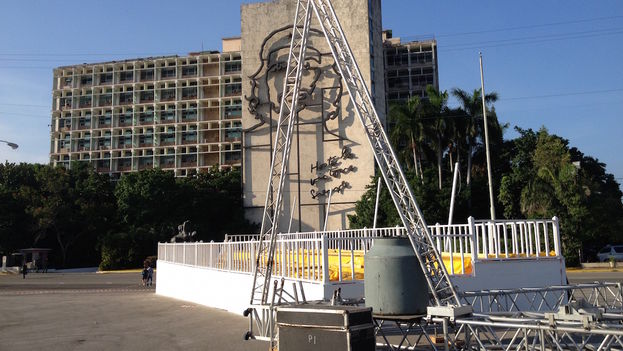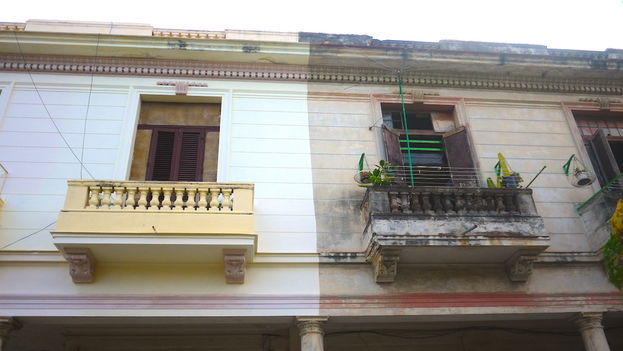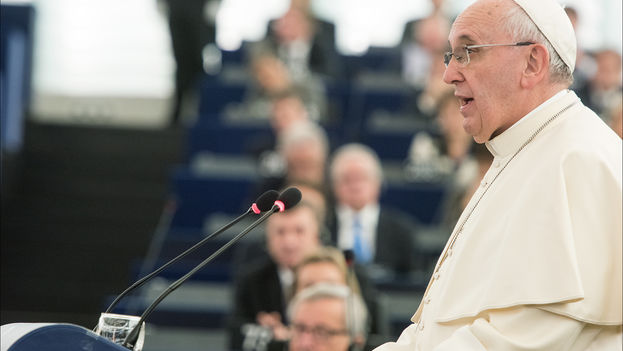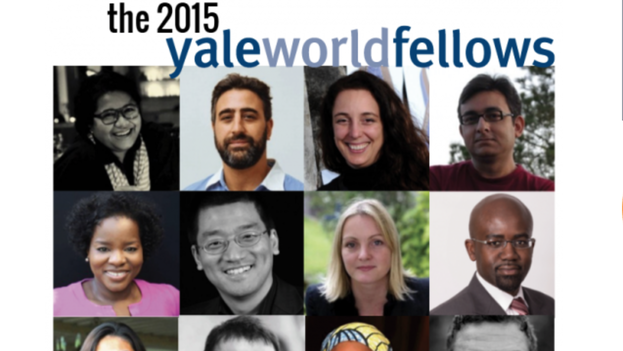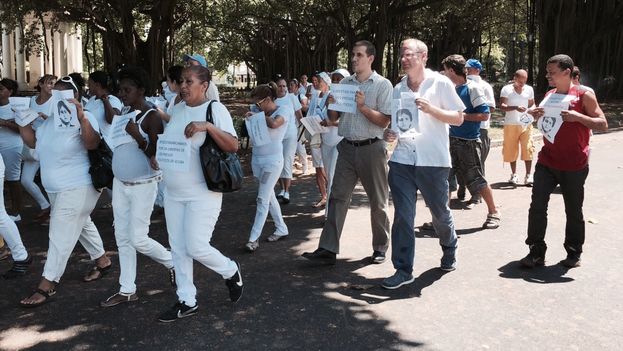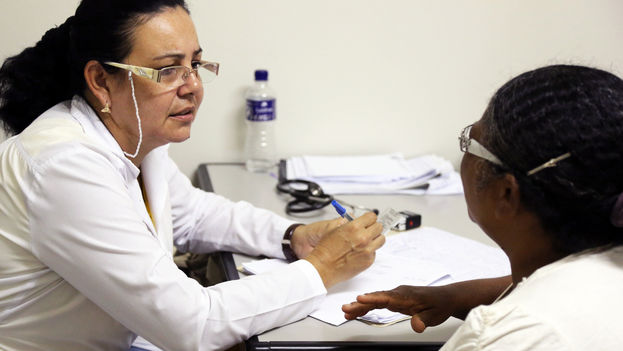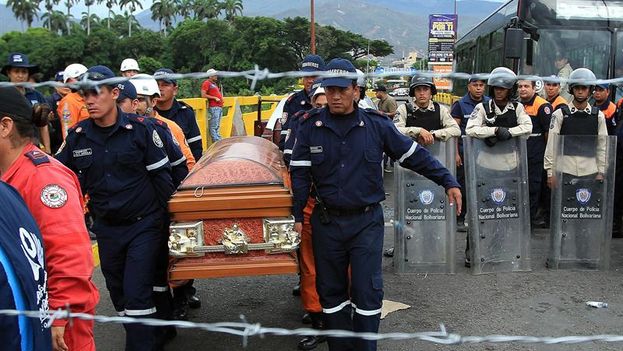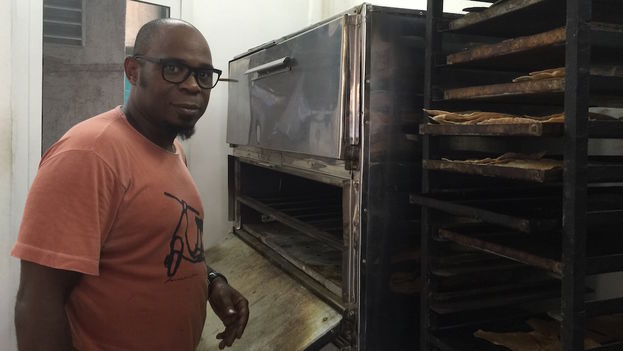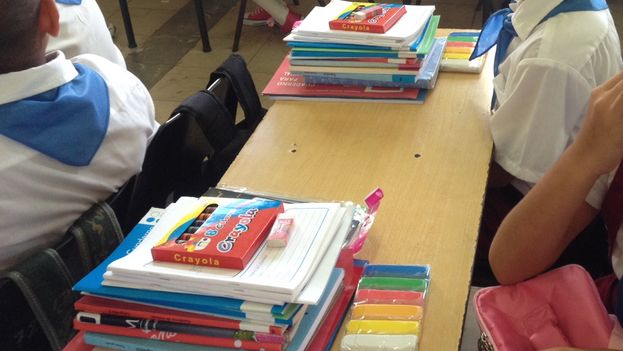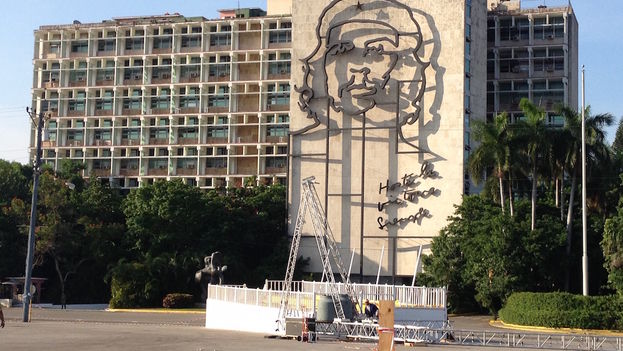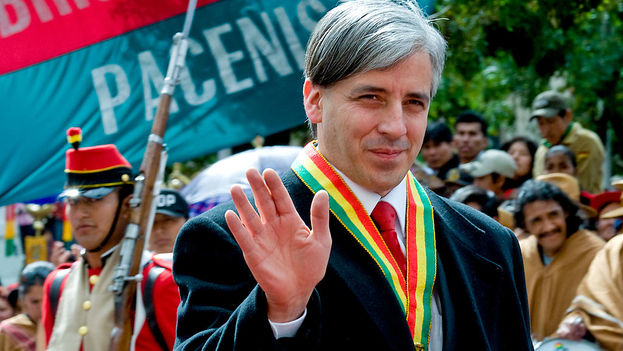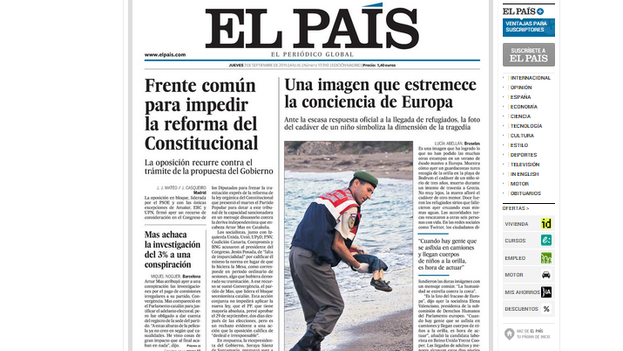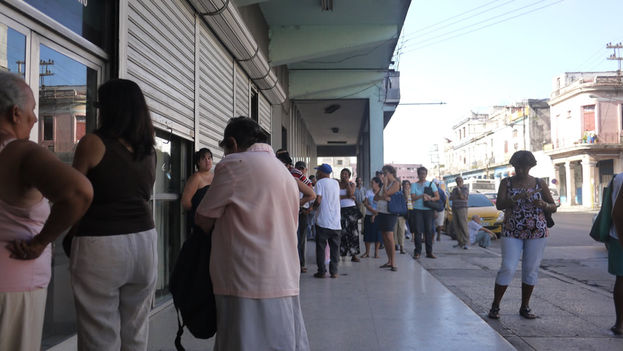We can say the same with regards to socialism, capitalism, democracy and another set of basic terms of today’s politics. It will be very necessary for us to agree first on what we mean by each of those words, if we are to reach broader agreements. Achieving this implies opening ourselves to different positions. continue reading
Likewise, we can speak of a positive language and a negative language. When someone shows themselves to be in favor of something it can be heard by someone who doesn’t think the same and can find points of agreement. But if a person or group defines themselves as against such a thing, they may begin by saying, “I totally disagree with you,” “you are completely wrong,” “with you there is nothing to discuss.” In fact, it is assuming an attitude of opposition and confrontation that impedes approaching and interacting directly with regards to that thing or person.
For the anti’s, those who are against it, the solution is generally the elimination of the contrary, the adversary, and not in its assimilation, in its dissolution into something new and everything is subordinated to this elimination, especially the methods to achieve it.
When the goal is to do away with the contrary, the objective itself determines how to do it and compels the methods of suppression, the use of violence. Consequently, almost always it generates a natural force of reaction in the object to be suppressed; force that often is superior to what it is opposing and so send up defeating the anti.
The study of history shows that if indeed many changes were achieved through violence, in practice these changes were already being developed
The study of history shows that if, indeed, many changes were achieved through violence, in practice these changes come already developed and settled; only those interested in rapidly provoking them turn to violence to achieve their objectives and end up with the contrary.
History also teaches us that many of those violent changes were not strong and lasting precisely because they had been precipitated – still not having created the conditions adequate for their full development – and they can only be sustained by continued violence. When violence ceases to be exercised in such conditions, generally the changes are reversed. Ergo: changes imposed, changes reversed.
It is not taking an anti-Castro, anti-communist, counterrevolutionary position – or whatever you want to call it – for those interested in the democratization of Cuban society to pursue it. Between an anti-something position and democracy there are insurmountable contradictions, precisely because anti implies suppression and elimination and democracy is not about suppressions or exclusions, but about a coordination among positions, including contradictory ones, and about inclusions and taking into account the interests of everyone.
One of the great masters of Cuban diplomacy, Professor D’Estefano, who died years ago, in one of his lectures on negotiations back in the seventies, taught us his “theory of ham loaf.” In a negotiation you cannot get everything all at once, just line you can’t eat a ham loaf in one bite, but if you take it slice by slice, you can eat the whole thing.
In this democratization of Cuba, those who have tried to eat the entire ham loaf in one go have always fallen into a grave error that has led to failure. No, gentlemen. This has to be done step by step. Not “with many pauses and no hurry,” but with negotiations, making progress slowly, not imposing positions, much less trying to suppress contrary positions.
In this democratization of Cuba, those who have tried to eat the entire ham loaf in one go have always fallen into a grave error that has led to failure.
Democracy can also be reversible when it is imposed, when it has not been preceded by a process of social and economic education. This is what we have seen in many countries where governments come to power by democratic means and then act like others that came into power through violence and end up hijacking the power of the people for partisan ends or for elites.
It is time for those who consider themselves sincere fighters for democracy in Cuba to begin to act with more consequence, intelligence and wisdom, to think more about the way, the methods, to achieve their objectives, rather than continue to consider themselves opponents, anti’s, enemies of the established power and to seek its elimination, to look for ways to negotiate a process of democratization with it that is inclusive, something everyone can agree on.
But if it is assumed there will be no democracy if the Castro tyranny does not first come to an end, then there will be no negotiation, no agreement, no peace process, no achieving the desired democracy. Why see this objective as a precondition and not as a result, where everything will end up changing?
I offer these ideas not that many of us are trying to come to an agreement about how to advance the process of democratization in Cuba. If everyone interested in democracy on the island doesn’t learn these lessons of history, they may have to resign themselves to standing firm for 50 more years in their “anti-Castro positions.”
From the movement for democratic socialism, I support the idea of a dialog involving all Cubans, and also those interested within the government-party-state, without anyone dominating it, where we all work together for the democratization of Cuban society. And if someone wants to remain outside this process by their own choice, that will their responsibility.
Why see this objective as a precondition and not as a result, where everything will end up changing?
In this struggle for democratization, we subordinate many other parts of our program to this objective that we now consider primary and supreme. We hope that all those sincerely interested in this process consider this elementary principle of coordination.
And I emphasize “coordinate” because it is not the same “to coordinate,” “to come together” — said José Martí — maintaining our identity and seeking points in common, as to fuse homogeneously into something that will later only serve hegemonic groups and over the long term, because the internal contradictions are not adequately developed, and they try to cut it short “for the sake of unity.” Is it necessary to recall recent disappointments of our history in this sense?
For the sake of the efforts being that are being undertaken no one is trying to impose straitjackets; no one is trying to distort the meaning of the words. If we have problems with the language and semiotics, let us first agree on that and then discuss the issues. Negotiate, negotiate and negotiate is what we must do.
Recently the Roundtable of Democratic Action Unit (some of us preferred another name) was established in Havana, and in Puerto Rico an important meeting was held with many Cubans from inside and outside the island who are interested in achieving democracy in Cuba. In order for these coordination efforts to make a positive contribution to the process of democratization, we must take into account all these historical lessons.
For the most positive forces of the government-party-state to not see “the enemy” in these movements and look for ways for their involvement, the first thing is not to present ourselves as such and to take a proactive position.
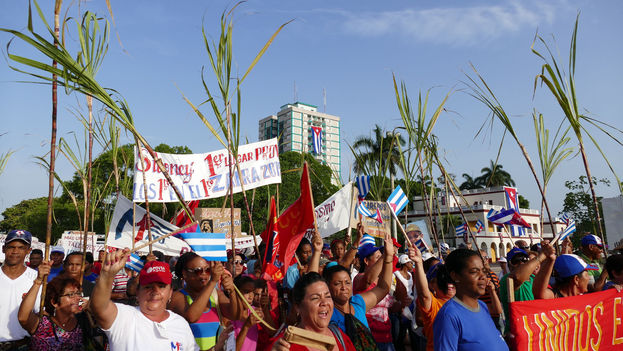
![]() 14ymedio, Reinaldo Escobar, Havana, 7 September 2015 — The old controversy between material incentives and moral incentives seems to return to the fore amid “the updating of the Cuban economic model.” According to an article published in the newspaper Trabajadores (Workers) under the signature of Gabino Manguela, the Heroes of Labor today lack the attention they received at the time when the State was the one that financed this simulation of a union.
14ymedio, Reinaldo Escobar, Havana, 7 September 2015 — The old controversy between material incentives and moral incentives seems to return to the fore amid “the updating of the Cuban economic model.” According to an article published in the newspaper Trabajadores (Workers) under the signature of Gabino Manguela, the Heroes of Labor today lack the attention they received at the time when the State was the one that financed this simulation of a union.
